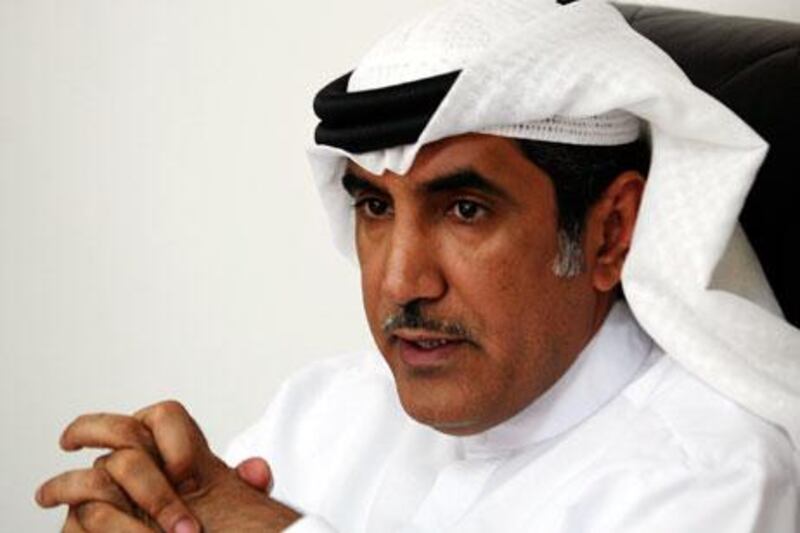During Mohammed Khalfan Al Rumaithi's four years as the Football Association president, the UAE enjoyed notable successes: the right to stage the 2009 and 2010 Club World Cups; a gold medal in the 2008 Under 19 Asian Cup; a silver medal in the 2010 Asian Cup.
But, at the end, Al Rumaithi's FA failed in its most important assignments. The national team missed the 2010 World Cup by a wide margin, and the 2014 World Cup by a wider one, and the Olympic team, from whom so much was hoped, is on the cusp of falling short of London 2012.
Al Rumaithi's resignation on Sunday demonstrates a healthy understanding of the need for a fresh approach, and the FA should seize upon the moment to embrace a new vision for a return to regional and international relevancy.
Urbane and unflappable, Al Rumaithi cut a fine figure, and he burnished his reputation as a football leader while heading the executive committee of Al Ain from 2001 to 2005; the side won a continental championship and three league titles during that time.
From 2004, he was the FA deputy president, and when Yousuf Al Serkal stepped down from the presidency in January of 2008, Al Rumaithi took charge.
He had little time to put his stamp on the 2010 World Cup campaign, leaving Bruno Metsu in place as the coach, and the Frenchman led the team to the final round of qualifying, which ended badly - with one point from eight matches.
The 2014 campaign, however, was Al Rumaithi's from beginning to end. Fatefully, he settled on Srecko Katanec, the brusque Slovenian, to manage the senior team.
The move made sense on several levels. Katanec had led Slovenia, a country with hardly any more citizens than the UAE, to the 2002 World Cup. He had played in Italy and in the 1990 World Cup.
The two men clearly respected each other, but Al Rumaithi's high regard for Katanec may have kept him from noticing the rift between the coach and the players, which proved debilitating, if not decisive.
Several prominent members of the UAE football fraternity, having heard the complaints of players, are known to have pleaded with Al Rumaithi to dismiss Katanec, in January, after a winless Asian Cup. But Al Rumaithi stuck with his coach.
His faithfulness was not rewarded. The UAE went down 3-2 at home to Kuwait in the opening match of third-round group play, and a shocking 3-1 defeat away to Lebanon effectively ended the 2014 campaign.
Al Rumaithi belatedly dismissed Katanec a few hours after the match in Beirut - but not before his credibility was battered.
When the Olympic team, constituting what Al Rumaithi had declared a "golden generation", took only one point from two home matches last month, falling to the bottom of their group, the president knew it was time to go.
It might be argued that the tides of history are flowing against UAE football. With the rise of Japan and South Korea, with Uzbekistan gaining prominence, with Australia added to an Asian federation already boasting strong and populous football powers, such as Iran and Saudi Arabia, nothing will come easily for the Emirates.
The FA need imagination and strong leadership to succeed in the modern age. Al Rumaithi had a vision; it did not work.
Some other brave soul will now get a chance.
[ poberjuerge@thenational.ae ]
@ For more on UAE FOOTBALL ASSOCIATION, visit thenational.ae/topics





